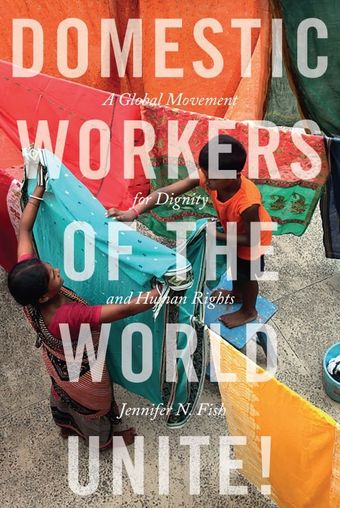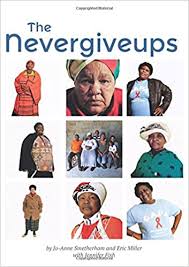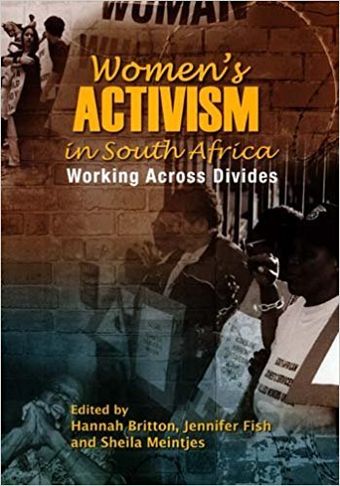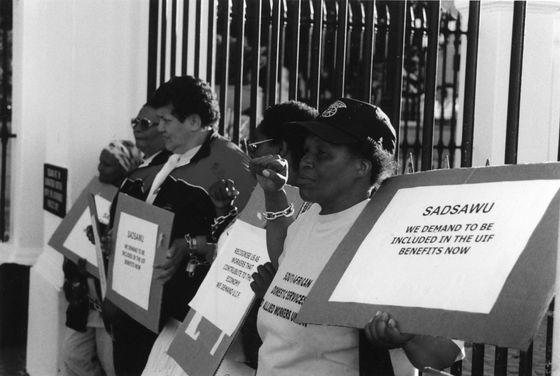BOOKS
Domestic Workers of the World Unite!
(NYU Press, 2017)
Domestic workers exist on the margins of the world labor market. Maids, nannies, housekeepers, au pairs, and other care workers are most often ‘off the books,’ working for long hours and low pay. They are not afforded legal protections or benefits such as union membership, health care, vacation days, and retirement plans. Many women who perform these jobs are migrants, and are oftentimes dependent upon their employers for room and board as well as their immigration status, creating an extremely vulnerable category of workers in the growing informal global economy.
Drawing on over a decade’s worth of research, plus interviews with a number of key movement leaders and domestic workers, Jennifer N. Fish presents the compelling stories of the pioneering women who, while struggling to fight for rights in their own countries, mobilized transnationally to enact change. The book takes us to Geneva, where domestic workers organized, negotiated, and successfully received the first-ever granting of international standards for care work protections by the United Nations’ International Labour Organization. This landmark victory not only legitimizes the importance of these household laborers’ demands for respect and recognition, but also signals the need to consider human rights as a central component of workers’ rights.
Domestic Workers of the World Unite! chronicles how a group with so few resources could organize and act within the world’s most powerful international structures and give voice to the wider global plight of migrants, women, and informal workers. For anyone with a stake in international human and workers’ rights, this is a critical and inspiring model of civil society organizing.
The Nevergiveups
(NYU Press, 2017)
The Nevergiveups tells the extraordinary life stories of six grandmothers now living in Cape Town, South Africa. These women have experienced hardship and sorrow, yet their stories are cameos of ingenuity and resilience – a testimony to the indomitable human spirit. The biographies describe how a group of Xhosa women have experienced the dramatic transitions of the past six decades, between rural and urban lifestyles, African and Western cultures, the apartheid and post-apartheid eras, and from a time in which the elderly expect to be cared for, to one in which they are thrust into a caregiving role once again as providers for their Aids-orphaned grandchildren and unemployed adult members. The poignant biographies are accompanied by the portraits and handwritten memories of 17 of their fellow grandmothers from Grandmothers Against Poverty and AIDS, a grassroots organisation formed by grandmothers in the Cape Town township of Khayelitsha. The book is a tribute to these grandmothers and others like them, across South Africa: a generation of unsung heroes.
Women’s Activism in South Africa: Working Across Divides
edited with Hannah E. Britton & Sheila Meintjes (University Of KwaZulu-Natal Press, 2009)
Women's Activism in South Africa provides the most comprehensive collection of women's experiences within civil society since the 1994 transition. This book captures South African women's stories of collective activism and social change at a crucial point for the future of democracy in the country, if not the continent. Pulling together the voices of activists and scholars, South Africa's path to democracy and the assurance of gender rights emerge as a complex journey of both successes and challenges. The collection elucidates a new form of pragmatic feminism, building upon the elasticity between the state and civil society. What the cases demonstrate is that while the state itself may not be a panacea, it still represents a key source of power and the primary locus of vital resources, including the rights of citizenship, access to basic needs, and the promise of protection from gender-based violence - all central to women's particular needs in South Africa.
Domestic Democracy:
At Home in South Africa
(Routledge, 2006)
Domestic Democracy chronicles the struggle to achieve labor rights for this largest sector of women workers during South Africa’s early transition from apartheid to democracy. Based on an extensive ethnography with the South African Domestic Service and Allied Workers Union, this book shows how women’s activism assured that the building of democracy included the establishment of rights and protections for the women who worked in isolation in private households. Through the voices of domestic workers, parliamentarians, activists, and employers, this book captures the struggle to realize rights ‘at home,’ the larger tensions of social and political transition, and the wider potential for human rights to prevail through the collective organization of women.



